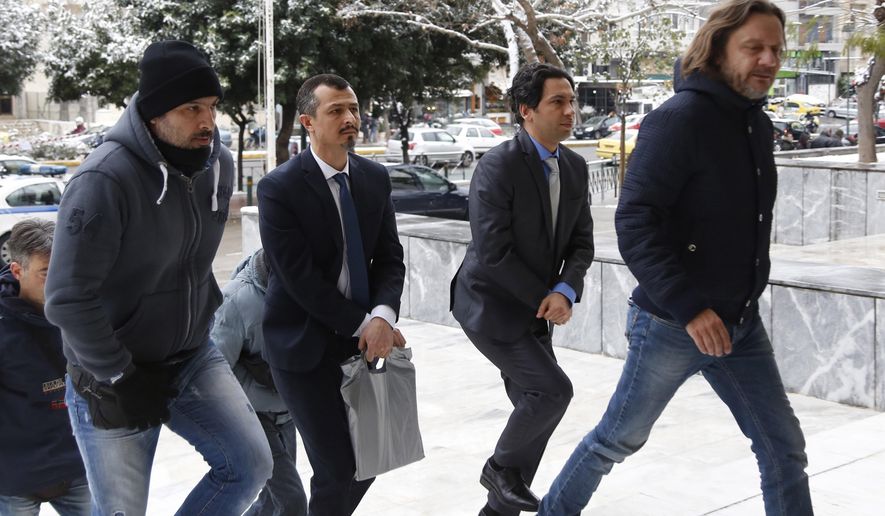ATHENS, Greece (AP) - A prosecutor at Greece’s Supreme Court recommended on Tuesday the court reject an extradition request for two Turkish servicemen who fled to Greece after a failed July military coup in their country.
The hearing is the first of three in Greece’s highest court for a total of eight helicopter crewmen, who are fighting extradition on grounds they will not face a fair trial in Turkey, and that their lives would be endangered. They deny participation in the coup attempt and in an alleged plot to assassinate Turkish President Recep Tayyip Erdogan on the night of the attempted putsch.
One of the two is appealing a lower court’s decision to grant Turkey’s the extradition request, while a lower court prosecutor is appealing a December court decision refusing extradition of the second man. The remaining six are to appear in separate hearings on Wednesday and on Friday. Their names have not been publicly released.
A decision for the two who appeared Tuesday is to be issued on Jan. 23.
Supreme Court prosecutor Vassiliki Theodorou recommended the two who appeared in court Tuesday not be extradited, arguing both that Turkey’s request was not correctly legally grounded, and also that the two risked not having a fair trial, and of being subjected to torture or degrading and inhuman treatment if sent home.
Both servicemen testified during their court appearance. One said his wife, brother and sister-in-law had all been suspended from their jobs in Turkey and the family’s assets had been frozen, while his wife’s passport had been confiscated.
“We came to Greece to save our lives and they call us traitors,” he said.
The eight flew to northern Greece on a military helicopter the day after the failed coup, and surrendered to Greek authorities immediately on landing. Greek authorities said all had been unarmed, offered no resistance and requested asylum.
Turkey has made clear it expects Athens to send all eight back to Turkey. The government there continues a widespread crackdown under a state of emergency, detaining thousands of people and purging tens of thousands of public servants over alleged ties to Fetullah Gulen, an Islamic cleric living in self-imposed exile in the U.S. Ankara blames him for the attempted coup, but Gulen has denied any involvement.
In December, extradition requests were denied for five of the eight, and accepted for three others. A prosecutor has appealed against the decision to grant the five permission to stay in Greece, while the remaining three are appealing the decision to extradite them.
December’s conflicting rulings added to tension between the two NATO allies, which have longstanding disputes over a series of issues including territorial claims in the Aegean Sea that divides the two countries.
The eight have not been publicly identified. Under Greek law, suspects of crimes are only identified at their request or if they are considered to be a threat to public safety.




Please read our comment policy before commenting.